The Graduate School of Medicine aims to contribute to the development of society by nurturing students into individuals who can make valuable contributions to both local and global society and through innovative research. To accomplish these goals, the school strives to develop more advanced academic knowledge and practical skills from a foundation of medical and scientific knowledge and technology.
Graduate School of Medicine: Department of Medicine's Researchers List
Click on the link below to view our researchers list.
Joint Graduate School of Medicine Program
Yokohama City University's Graduate School of Medicine is engaged in Joint Graduate School Programs with various establishments as shown below. Under the Program, we invite doctors and researchers from these establishments who assume the post of Visiting Faculty of YCU Graduate School of Medicine. Also, we send our graduate students to excellent research environment at their establishment to research. We are strengthening educational collaboration on advanced research, lecture and guidance, which contribute to enhance development of medical services.
Cooperation with the National Institute of Infectious Diseases (NIID)
NIID is an engaged in an effort to research and support the prevention of infectious diseases and clarify the scientific evidence of governmental healthcare, conduct a leading study on infection in a creative, synthetic way, in terms of preventive medicine, which relate to promotion of national health care. We conclude an arrangement to involve development of educational research activity about infection and medical services.
Cooperation with Kanagawa Children's Medical Center
Kanagawa Children's Medical Center is a core facility of paediatric care, which covers the entire area of Kanagawa prefecture. The Center has plentiful case patients, especially paediatric congenital disease and refractory disorder.We sent our graduate students to the advanced academic research environment to cooperate closely with them and utilize their cases for research activities, to commit to the promotion of the quality of paediatric care and advance the cultivation of human resources in Kanagawa Prefecture. Our two-way exchange promotes active interchange of information and human resources development.
Cooperation with the Kanagawa Cancer Center Research Institute
Kanagawa Cancer Center Research Institute is made up of four departments (Molecular Pathobiology/Biology/Therapeutics/Prophylaxis and Information Science; of Cancer), and has seven project teams below them. These organizations cooperate organically and are evolving a quite wide range of fields, for instance, cancer's basic medicine, translational research to epidemiology. We exchange and work together in the area of tumor pathology.
Cooperation with the Pharmaceuticals and Medical Devices Agency (PMDA)
In 2008, a clinician assumed the post of Chief Executive of PMDA for the first time. Then the way of new medicine and medical device screening has changed to the viewpoint of clinicians. They now place a high priority on Science (Regulatory Science), and also have started incorporating clinicians' sense and measure of the necessity and urgency of governmental regulation. As a result, PMDA requires clinical specialists who have rich medical knowledge and experience for examinations. At the same time, we aim to train clinicians who have learnt clinical research and clinical trials and can focus on our translational research . Our purposes coincide mutually, and finally we established Japan's first Joint Graduate School Program with PMDA in April 2010.
Cooperation with the National Institute of Radiological Services (NIRS)
We concluded a comprehensive agreement with National Institute of Radiological Sciences, which conducts heavy particle radiotherapy, the most advanced kind of cancer radiotherapy. We offer the opportunity to learn knowledge and techniques about Heavy Particle Radiotherapy at the Institute, with the aim to develop doctors, clinical radiotherapists and specialists in the area of physical engineering and biochemistry who can deal with heavy particle radiotherapy.
Medical-Engineering Collaboration with Yokohama National University (YNU)
We have worked on MEXT (Ministry of Education, Culture, Sports, Science and Technology) Global COE Program Innovative Integration between Medicine and Engineering Based on Information Communications Technology' since 2008. Our aim is to educate the world's highest level of scientists, engineers and doctors in fields that fuse medicine and engineering. Our goal is to establish the 'Double Degree Program' between YNU and YCU. This program will set up the system in which you can acquire two doctoral degrees, Doctor of Medicine and Doctor of Engineering.

